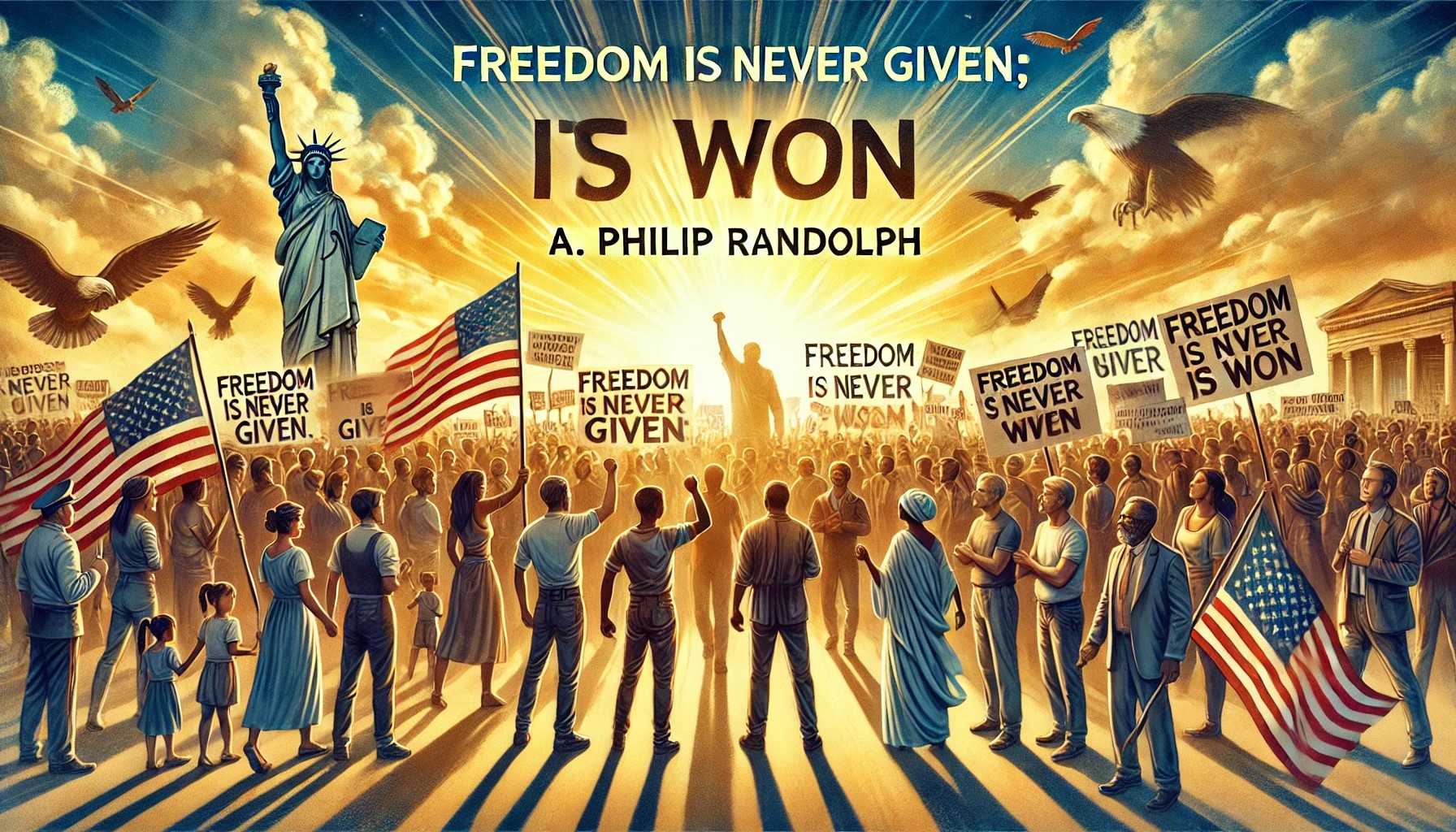
🌟 “Freedom is never given; it is won.”
Description: A. Philip Randolph, U.S. civil rights leader, 1963
Source: This image is available from the United States Library of Congress‘s Prints and Photographs division under the digital ID cph.3c19495
Author: John Bottega, NYWTS staff photographer
Philip Randolph emphasizes that true freedom is achieved through effort and perseverance. Freedom is never given; it is won. Take pride in the struggles and victories that lead to freedom. Each step towards liberation is a testament to courage and resilience. 💪🌟
Today, reflect on the battles fought and sacrifices made for the freedoms you enjoy. Whether it’s the rights secured by previous generations or personal challenges you’ve overcome, recognize the hard work and determination that have paved the way. 🕊️✨
Use this understanding as motivation to continue striving for greater freedom and justice. Stand up for what you believe in, support those who are fighting for their rights, and never take your freedoms for granted. Remember, every effort you make contributes to a legacy of liberation and progress. Together, we can win and protect the freedoms we cherish. 🌟🏆
Philip Randolph, born Asa Philip Randolph on April 15, 1889, in Crescent City, Florida, was a prominent African American civil rights leader and labor organizer. He played a pivotal role in the fight for racial equality and workers’ rights in the United States.
Randolph grew up in a religious and politically active family. His father, a minister, and his mother, a skilled seamstress, instilled in him the values of education and social justice. He moved to New York City in 1911, where he studied at City College of New York and became involved in the socialist movement. His early experiences in Harlem, a hub of African American culture and activism, profoundly shaped his future endeavors.
In 1925, Randolph co-founded the Brotherhood of Sleeping Car Porters (BSCP), the first predominantly African American labor union. The union aimed to improve the working conditions and wages of the porters who worked on the Pullman Company’s luxury train cars. Despite significant resistance from both the company and established labor organizations, Randolph’s leadership and persistence led to the BSCP winning a landmark contract in 1937, marking a significant victory for African American labor rights.
Randolph’s influence extended beyond labor organizing. In 1941, he proposed a March on Washington to protest racial discrimination in the defense industry and the military. This threat of mass protest led President Franklin D. Roosevelt to issue Executive Order 8802, which banned discrimination in defense industries and established the Fair Employment Practices Committee (FEPC). This was a significant step towards civil rights and set a precedent for future activism.
In 1963, Randolph’s vision of a March on Washington became a reality. He was a key organizer of the March on Washington for Jobs and Freedom, where Martin Luther King Jr. delivered his famous “I Have a Dream” speech. The march was a pivotal moment in the civil rights movement, drawing attention to the need for economic and racial justice.
Randolph continued to advocate for civil rights and labor issues throughout his life. He played a crucial role in the passage of the Civil Rights Act of 1964 and the Voting Rights Act of 1965. His commitment to nonviolent protest and coalition-building made him a respected and influential figure in both the labor and civil rights movements.
- Philip Randolph passed away on May 16, 1979, but his legacy endures. He is remembered as a tireless advocate for justice and equality, whose efforts helped to transform American society and advance the cause of civil rights and labor rights for African Americans.